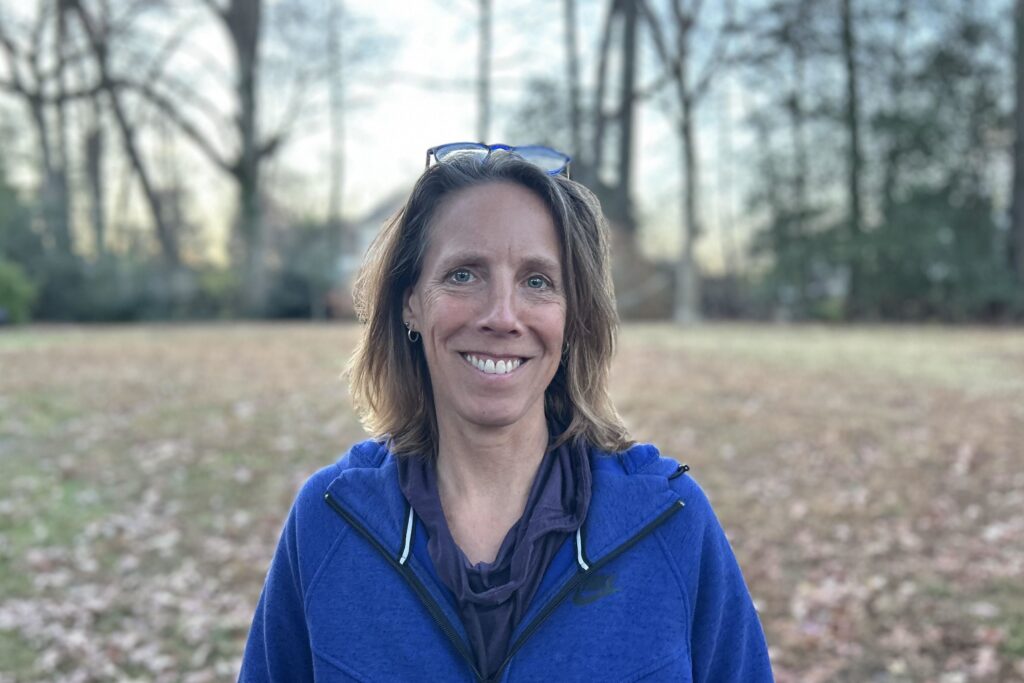miCRo: “Summit” by Deb Werrlein
3 Minutes Read Time

Assistant Editor Kate Jayroe: Deb Werrlein’s “Summit” traverses a memory-filled switchback then ascends to a rich, stunning apex of nature and language. As the piece transitions from reflection to ascension, compassionate wisdom charges its themes of bodily autonomy, acceptance, and love.
Listen to Werrlein read the story:
Summit
In an evergreen forest thick with the smell of pine, I munched a granola bar and prepared to climb Oregon’s 5,325-foot-high McKenzie Pass. Twenty miles of incline marked the last significant ascent of my three-month transcontinental bicycle trip, and I was in no rush. After eleven weeks on the road with fifty pounds of belongings strapped to my bike, I’d learned to embrace the pain and process of going up.
As a teen and young adult, I often punished my body for all the ways I thought it failed me—my too-big feet, too-short waist, too-flat chest, too-thin hair, too-fat everything. Once, after days of fasting, I binged on a white-frosted chocolate cake I’d baked for that purpose. Sickened halfway through, I buried the cake in the trash, only to dig it out later and finish it in great mouthfuls of crystalline shame.
About two-thirds of women recover from their eating disorders. Perhaps that’s a good number—until you hear that it takes them twenty-two years. I overcame my behavior by focusing on how I felt instead of how I looked, striving to be strong instead of skinny. A simple formula applied over years . . . until I could forgive my body for being itself. Until I could forgive myself for having hated my body.
More than three decades later, time has replaced me as my body’s greatest enemy. On my first week of this trip, three different people asked me my age, as if fifty-six is too old for adventure. I say no age is too old for living. But I’ve been around long enough to marvel at the fierce grip of tendon on muscle and bone that still holds me together well enough to propel a bicycle up a 6 percent grade with a persistent thrumming that matches the miracle of an ever-beating heart.
At the base of the climb, I stretched my back and legs, then shoved my granola-bar wrapper into the pocket of my pink-and-yellow bike shirt, clipped my dusty bike shoes into my pedals, and began the ascent. As I climbed, I inhaled the forest and let its crisp, cool green unclench my mind from the idea of the work, freeing my body to pedal through scene after scene on a mountainside that unwound like an elegant meandering sentence—or a life. The sole cry of a Steller’s jay announced my passage as the muscles in my legs powered me up . . . and up . . . and up where endorphins mixed with shards of light and shadow that dissolved into sunlit mountainside clearings from which blackened husks of fire-swept trees peered out over jagged boulders tossed and tumbled to rest in a spectacular moonscape of lava fields gleaming through complicated cut-diamond tears at the summit.
Deb Werrlein’s work has been nominated for a Pushcart Prize and has appeared in a variety of publications, including River Teeth’s Beautiful Things, The Los Angeles Review, Brevity, and Creative Nonfiction. She is currently at work on her first novel, based on her ninety-day transcontinental bicycle trip. More at debwerrlein.com
[button link=”https://www.cincinnatireview.com/micro/”] Read More miCRos[/button]

